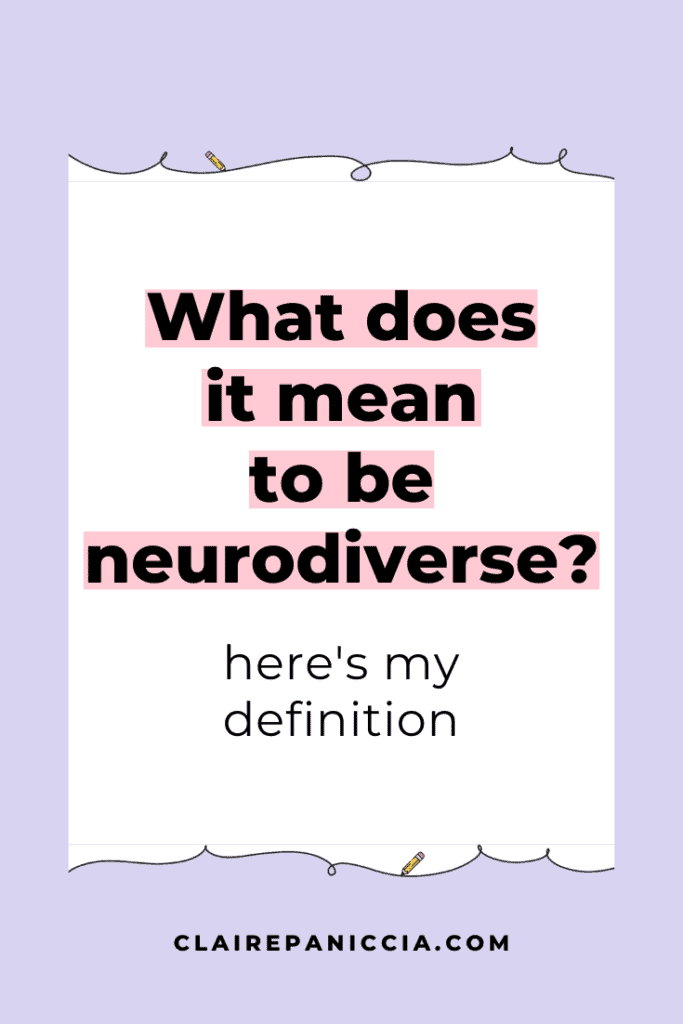I talk a lot about neurodiversity, about being neurodiverse, about being ADHD and all that stuff, so much so that it’s even on my homepage!
But for some people, that begs the question…
What does it actually mean to be neurodiverse? What even is neurodiversity??
So let’s talk about what all of this actually means.
What is neurodiversity?
Neurodiversity is basically the idea that everyone’s brains are different, and we all experience and interact with the world around us differently because of the way our brains work, and that these brain differences are normal, rather than being deficits.
What does it mean to be “neurodiverse”?
The term neurodiverse describes people whose brains work differently in some way from most people (who we call “neurotypicals”).
The terms were coined in the 1990s by sociologist Judy Singer, who has autism.
Medically, they’re usually used to refer to people with autism, ADHD, and other developmental disorders, but the terms are also used in some places to include things like depression, anxiety, and other mood disorders. (That’s how I define them, personally)
Also, just to clarify, neurodiverse and neurodivergent are both often used as the adjective to describe a person or a group of people. Grammatically speaking, neurodivergent is the correct term for an individual.
But personally, I prefer neurodiverse over neurodivergent, and I’ve seen lots of others use them interchangeably as well.
Anyway, back to defining things.
I really like what the Cleveland Clinic says about it:
“The term “neurodivergent” describes people whose brain differences affect how their brain works. That means they have different strengths and challenges from people whose brains don’t have those differences. The possible differences include medical disorders, learning disabilities and other conditions.”
But enough with technical definitions and all that.
Here’s how I define being neurodiverse:
Being neurodiverse means that our brains work a little (or a lot) differently than what the world around us expects.
It could be ADHD, or autism, or OCD, or chronic depression, or anxiety, or any number of other conditions.
But ultimately, it encompasses the experience of other people saying “Just do it” and us literally not being able to “just do it”. Just doing it is exactly the part that’s hard for us.
Whether it’s because we’re ADHD and struggle with prioritizing tasks that should be done before others (because the others are just sooooo much more interesting)
Or because we’re in a depressive swing and can’t get ourselves off the couch to even shower, let alone all the other “regular” adulting things.
Or because long, project-length to-do lists trigger our anxiety and put us into fight, flight, or freeze.
There are literally countless reasons “just doing it” doesn’t work for us.
Meanwhile, we’re surrounded by the rest of the world piling the shame on us, trying to teach us strategies or even just modeling how things “should” work, even teaching in ways that don’t work for us, and giving us advice that’s either useless on a practical level, or telling us we’re just “self-sabotaging” and need to work on our mindsets.
And we end up feeling shame, feeling like we’re behind in life, with low self-confidence and self-worth, and still just struggling.
That is… until we figure out that we’re neurodiverse, and start understanding ourselves better, and figuring out our strengths as well as our weaknesses, and start building our lives in ways that actually work for us, instead of trying to force ourselves to change to fit the life that the world is telling us we should be living.
That’s what it means to be neurodiverse.
At least to me.
But I’m not the only one in this community, and my opinion isn’t the only one that matters, so I want to hear from you:
What does being neurodiverse mean to you?
Did any of this resonate with you in a particular way?
I’d really love to hear your thoughts 🤗
And if you’re still in the struggles I described and haven’t yet felt empowered about your brain, it’s okay. You’re doing great. And you’re not alone 💖




